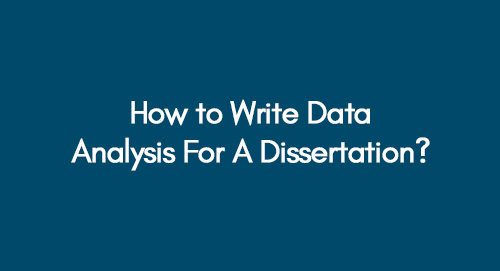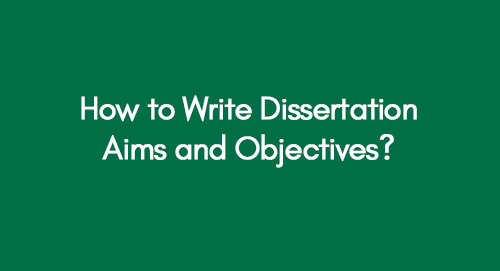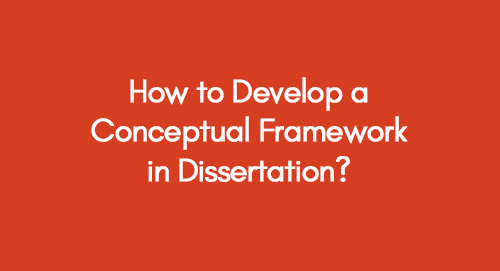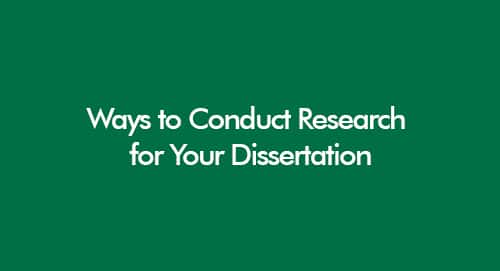
How to Write Data Analysis for a Dissertation?| A Detailed Discussion
August 27, 2022
How to Write Dissertation Aims and Objectives? | A Guide
August 31, 2022A conceptual framework is the basis of your dissertation, and you are about to earn an academic degree if you search online on what it is. Since most academic terms are already familiar to you, we will focus on conveying the topic in an easy-to-understand manner.
Learn More about Conceptual Framework Here
How does a conceptual framework apply to research and dissertations? Getting the definition can be quite difficult, so that we will simplify it. The conceptual framework in a dissertation or thesis outlines how the author will present the research.
Developing a conceptual framework will depend on the type of research you are conducting. The conceptual framework for a dissertation allows theorists and researchers to test hypotheses to verify their validity. Additionally, you can observe whether the variables are appropriate for the study. Learn the precise steps to create a powerful conceptual framework for your dissertation with our comprehensive guide on 'how to develop a conceptual framework in a dissertation.
Key Components of a Conceptual Framework
- The topic should be defined.
- Information about the topic is useful and qualitative.
- Defining the topic's elements
- The topic's components.
- Closure and presentation.
Why do we Need a Conceptual Framework for Our Research?
Research papers use conceptual frameworks to explain key concepts and variables, as well as their interrelationships. To put it simply, the conceptual framework is how ideas are organized to achieve the purpose of the research, and explanation is commonly used to accomplish that purpose.
Conceptual frameworks represent a researcher's perspective on a research problem, but they are also self-explanatory methods that guide readers through the process.
Data collection should begin after you have constructed your conceptual framework. An illustration of cause-and-effect relationships is common in conceptual frameworks.
How Long is a Conceptual Framework?
There is no right number for conceptual frameworks. Depending on the program, discipline, and university, conceptual frameworks may vary in length. Find out what are the expectations of your department before you begin. It is common for conceptual frameworks to be 1-3 pages long; however, they can be much longer. Generally, when conceptual frameworks are discussed in more than one chapter of a dissertation, the first section will contain a brief introduction, followed by a more detailed discussion.
It is important to be clear and concise when describing your conceptual framework. Resist the temptation to overwrite, even though the document reflects the wealth of research you have already completed. Throughout your dissertation, you will have plenty of opportunities to discuss your ideas in depth.
It is an act of brevity to write a conceptual framework. By explaining their relevance to your topic in a short and concise way, you can show your audience you understand the theories you're using.
Pro Tip: Do not lose patience. Conceptual frameworks take time. To get your conceptual framework right, you may need to draft a few drafts, but these revisions are well worth it.
What is the Relationship Between the Conceptual Framework and Cause-Effect Relationships?
To understand the conceptual framework in research, think of it like riding a bike for a test drive before you buy it to find out if it's the right bike for you. Our goal is to determine how one subject's action affects the other and vice versa, through the cause-effect relationship.
Here is an example of a cause-effect relationship:
As a university student, Robert earned a gold medal for her stellar 3.8 CGPA. In recognition of the hard work he had been putting in, she was awarded the gold medal.
What are Dependent and Independent Variables?
A cause-effect relationship is formed by two variables, namely, the independent variable and the dependent variable. The independent variable in our example is "hard work," while the dependent variable is "gold medal." This means that you need hard work to earn a gold medal. Therefore, hard work is required to win a gold medal. Note that these are the two main types of variables. There are others that we will discuss in the next section.
Independent variables can affect the dependent variable in more than one way. Our example can also be used to extract the independent variable "CGPA". Thus, "excellent CGPA" led to "gold medal", where "CGPA" is a dependent variable, and "gold medal" is an independent variable.
What are Other Conceptual Framework Variables?
A conceptual framework variable is typically divided into dependent and independent variables in order to describe its relationship to conceptual framework variables, which we just discussed.
When there is a causal relationship between pieces of data, this division is applicable. Regardless of the conceptual framework, the dependent variable is always an effect of the independent variable (which becomes the cause). You will find that a complex system like the research you do for your thesis or dissertation has more than just two such characteristics. Let us check them out right now.
Moderating Variables
A moderating variable is a piece of information that changes an existing causal relationship. A moderating factor influences the independent characteristics of your research. Moderating variables affect causal relationships by strengthening or weakening them.
As an example, let us look at a conceptual framework. Analyze digital books' impact on writing ability by considering your research question. The dependent variable is writing skills, while the independent variable is book reading. The inherent literacy level could serve as a moderating variable in this case.
Inherent literacy, for example from parents who write, may have a small effect on your writing skills if you read digital books.
Mediating Variables
Independent and dependent variables can be explained through the medium of a mediated variable. By incorporating mediating characteristics into your statement, you provide additional evidence to support the claim.
Your conceptual framework can be made more confusing by the use of mediating variables. To avoid misunderstandings, make sure you use them precisely and concisely.
Using our reading and writing routine as an example of a conceptual framework for mediating variables is a good place to start. Reading quality books will have a greater impact on your writing ability than reading a lot of them.
Control Variables
Our causal relationship can be affected by control variables, which are constant pieces of information. As a result, we can literally control how our research is conducted with respect to some constant factor that may arise in the future.
To demonstrate how dependent and independent characteristics are related, control variables examine how they are related. When we look at our reading and writing example, dyslexia is a good control characteristic.
The writing skills of people with dyslexia are hardly comparable to those without this problem. Because of this, our research cannot be applied to dyslexics. You can buy dissertations written from scratch if this assignment ever bothers you.
Research Conceptual Frameworks: How to Develop Them?
Conceptual frameworks represent the relationship between variables or characteristics that you expect to find. Literature reviews of existing studies about your topic are usually used to develop conceptual frameworks, which can be written or visual. Below are several steps:
1. Choosing a Research Question
The purpose of your research question is to determine exactly what you want to find out, guiding your research process.
If you were interested in determining whether students are more likely to score higher on their SAT if they study more hours. A study or experiment can be used to test the relationship between variables to answer this question.
You should, however, construct a conceptual framework before collecting your data. By doing this, you will be able to determine what variables you will measure and how you expect them to be related.
2. Select Your Independent and Dependent Variables
A cause-and-effect relationship can be tested when at least two key variables are identified: the independent variable and the dependent variable.
- We will follow our example. The determinant, "hours of study," is the independent variable (predictor or explanatory variable).
- As a result of the expected effect, the dependent variable is the SAT score.
Therefore, your hypothesis will be that students will do better on SAT if they study for more hours. The dependent variable is often influenced by other variables as well in causal relationships.
3. Identify Your Cause-and-Effect Relationship by Visualizing It
In order to design your conceptual framework, you must visualize the cause-and-effect relationship between your research question and variables. The fourth step is to identify other variables that may influence the outcome
Your research process should begin by identifying other variables that can affect your independent and dependent variables. Moderating, mediating, and controlling variables are common variables to include, as we just mentioned earlier.
A Quick Recap
- Choosing your research topic is the first step. You should choose this based on your interest and the resources you have available.
- Learn about past conceptual frameworks by reviewing relevant and updated research on similar topics.
- Use the variables that are important for your study (dependents and independents) to develop your conceptual framework.
- Consider the influence of other variables (mediator, moderator, control variables) on the relationship between your independent and dependent variables by expanding your conceptual framework.
What are the Types of Conceptual Frameworks?
These are the three basic types.
- Taxonomy
- Visual representation
- Mathematical description
Taxonomy
Categorizing phenomena into classes is what this verbal description is all about. Within a class, there are clearly relationships, but there are no or weak relationships between classes. Conceptual frameworks of this type do not show the relationships between classes.
In many cases, the phenomena described are broad in scope, even if they are narrow in scope. Direct experience, logical reasoning, or empirical evidence can be used to support the phenomena. From a scientific perspective, the source may be considered lacking rigor.
Example: In addition to Gray and Robinson's (1960) visual depictions of the major aspects of reading, Goodman (1970) illustrated the reading process, and Smith and Carrigan (1959) illustrated the writing process.
Mathematical Description
A mathematical equation can be used to describe the phenomena, but verbal descriptions and pictorial representations are also possible. In a conceptual framework such as this, relationships between phenomena are quantified with specific weights assigned to each; this clearly distinguishes it from visual representations that only indicate the existence of a relationship, but not its degree; and taxonomy that may not indicate a relationship between classes. In terms of reading, the phenomena represented are probably narrow; however, this may change in the future.
The frameworks of this type require empirical evidence based on research, but logical explanations may not be necessary, since they only describe what is, rather than why it is. It is common for mathematical explanations to be narrow in scope because they only include evidence that can be empirically collected.
Example: A conceptual framework of this type can be found in the work of Holmes (1960, 1965) and Singer (1965).
Note: Conceptual frameworks are not specifically divided into three types. Visual representations and verbal descriptions are both possible for mathematical descriptions.
It is also possible to verbally describe a visual representation and to draw a diagram of taxonomy, although there may not be a clear connection between the various classes. The appropriate empirical evidence could eventually lead to the development of a mathematical description from a taxonomy or visual representation. Conceptual frameworks of one type are not necessarily superior to those of another.
Theoretical and Conceptual Framework: What are the Differences?
Community development can be enhanced by empowering residents to utilize their skills and abilities. Coming up with innovative ways to contribute to the betterment of other residents can help build and transform a community. Organizing a society fair by a stay-at-home mother or participating in a firefight to keep the community safe are both examples of community assets.
Research studies require both theoretical and conceptual frameworks. It is difficult for readers to comprehend a research paper without understanding the theoretical and conceptual framework behind the hypothesis and assertions made by the author. The research is sloppy and unprofessional as a result of this.
The advancement of knowledge can be greatly enhanced by a well-written research paper. Both frameworks are interchangeable, but they differ conceptually.
Research is guided by a theoretical framework that determines which concepts will be covered and how they will be measured. On a broader scale than traditional representations, it depicts the relationship between things and the relationship between things. Various research has yielded existing and time-tested theories incorporated into this theory.
The conceptual framework definition, however, focuses on how the researcher will explore the problem under research in a specific direction. It outlines how the variables identified in the study are related to one another and the whole study process. Instead of relying on others' work for conclusions or hypotheses, a conceptual framework relies on your own theory.
Conceptual Framework vs. Theoretical Framework
Conceptual Framework:
- Describes and organizes the existing knowledge base.
- Models are grouped into a conceptual framework based on their relationships.
- Concepts are explicitly related in this framework.
- Breaking down a concept into smaller ones, helps you understand a situation.
- By using a conceptual framework, you are assuming that you know what you are going to do, and then researching the best way to accomplish that.
Theoretical Framework:
- The goal is to create new theories.
- Theories describe how we perceive reality or explain how something works.
- Unknowns are explained by a theoretical framework.
- Concepts, methods, and techniques can be discovered or developed using theoretical frameworks.
- You can use this framework when you want to understand how something is done, but you don't know the outcome.
What are Some Conceptual Framework Guidelines?
- Prepare a literature review and choose a topic for your research.
- Research the subject matter to understand what has already been done.
- Determine how the literature describes specific variables and examine their relationship.
- Identify knowledge gaps and fill them.
- A conceptual framework can be created using flowcharts, mind maps or concept maps, and then explained.
FAQs About Conceptual Framework in Research
When testing the effects of a scientific experiment on a dependent variable, an independent variable is changed or controlled. Scientific experiments require a dependent variable to be tested and measured.
As the dependent variable depends on the independent variable, it is called a dependent variable. The experimenter observes and records the effect of changing the independent variable on the dependent variable.
Get 3+ Free Dissertation Topics within 24 hours?



























